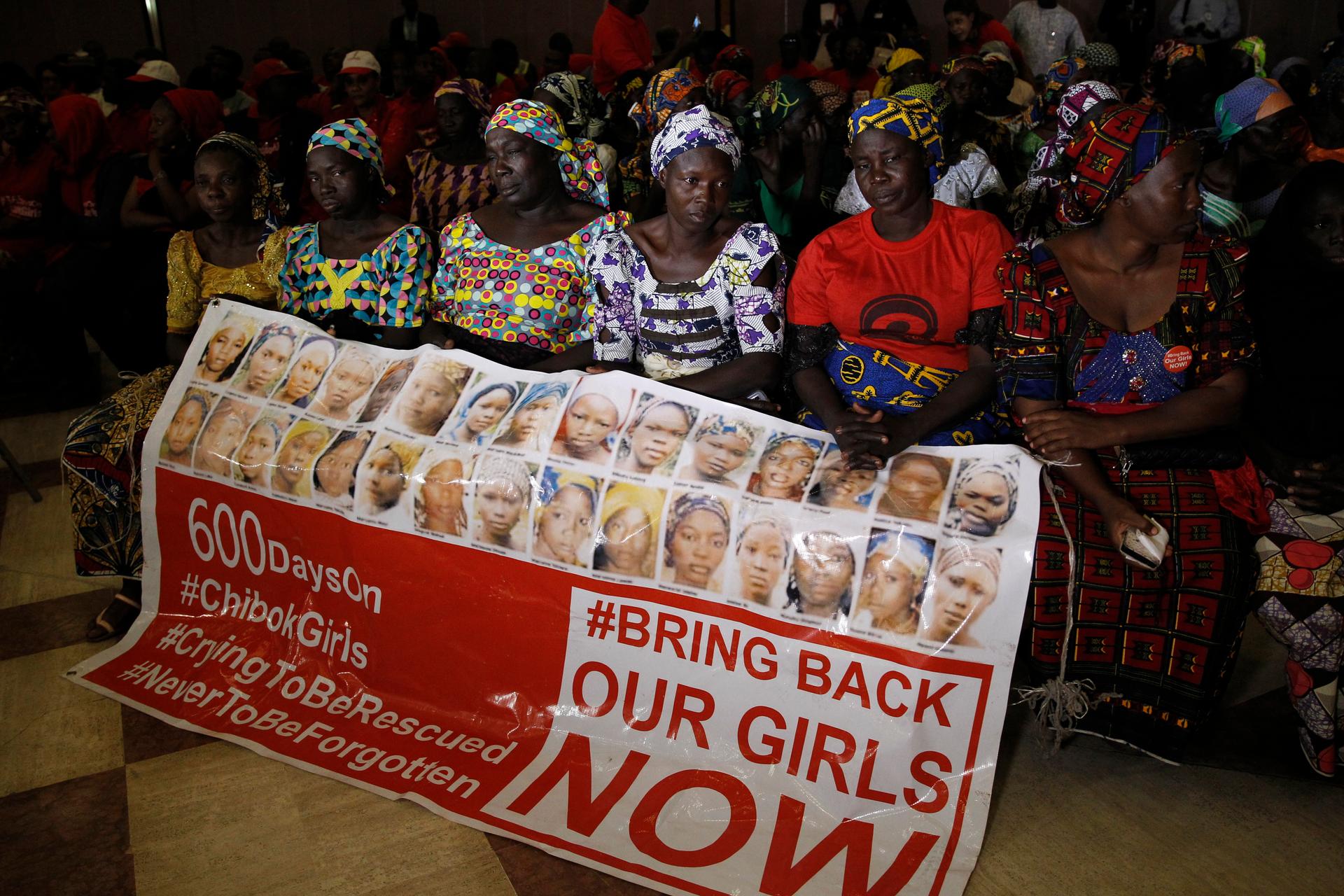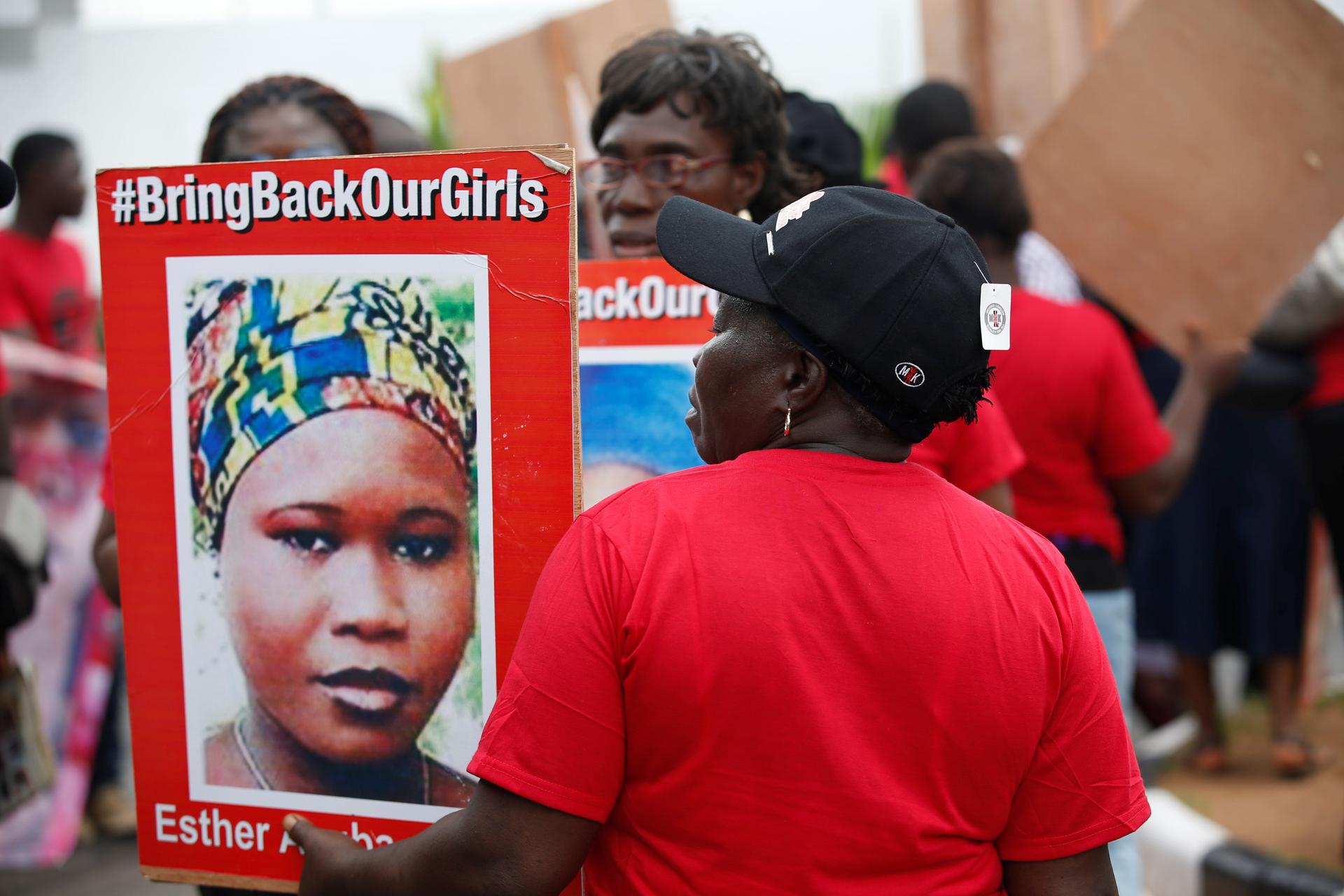Prisoner swap deal gets 21 of the kidnapped Chibok schoolgirls released
A woman carrying a portrait of Esther Ayuba attends a street protest campaigning for the rescue of abducted Chibok girls, in the Ikeja district of Lagos, Nigeria April 14, 2016.
Jihadist group Boko Haram has released 21 of the more than 200 kidnapped Chibok schoolgirls held since April 2014 in a prisoner swap deal with the Nigerian government, local sources said Thursday.
"As I depart Abuja for Germany on an official visit, I welcome the release of 21 of our Chibok girls, following successful negotiations," Nigerian President Muhammadu Buhari said in a statement on Twitter.
The girls were exchanged for four Boko Haram militants in Banki, northeast Nigeria, said the local sources.
The Nigerian presidency released a statement saying that the girls were released after negotiations between Boko Haram, the International Committee of the Red Cross (ICRC) and the Nigerian and Swiss governments.
The statement added that negotiations are ongoing, raising the prospect of more releases.
"It is confirmed that 21 of the missing Chibok girls have been released and are in the custody of the department of state services," said Presidential Spokesman Garba Shehu.
According to a local source, "The girls were brought to Kumshe, which is nine miles from Banki where a military base is stationed, in ICRC vehicles."
"The four Boko Haram militants were brought to Banki from Maiduguri in a military helicopter. [Then] they were driven to Kumshe in ICRC vehicles."
From Kumshe, the Chibok girls were taken by helicopter to Maiduguri, the capital of northeast Borno state.
"The 21 [Chibok] girls arrived [in] Banki around 3 a.m. where they found a military helicopter waiting. They were immediately ushered into the helicopter and flown to Maiduguri," said another local source.

'End of the insurgency'
Over 200 girls were captured from the northeast Nigeria town of Chibok in April 2014 by Boko Haram militants as part of their fight to establish an Islamist state in the region.
The audacious kidnapping drew global attention to the jihadist insurgency engulfing the area.
Out of the 276 girls kidnapped, scores escaped in the hours after the kidnapping, while another was rescued earlier this year.
In September, the Nigerian government said that it had opened negotiations with Boko Haram to secure the release of the remaining girls but that the talks were derailed due to a split in the extremist group.
The identity of the girls has yet to be confirmed, said Bring Back Our Girls campaigner Aisha Yesufu.
Prisoner swaps between Boko Haram and the Nigerian government have happened before, said Ryan Cummings, director at intelligence firm Signal Risk.
"Obviously the guys that Boko Haram [want to be] released would be more high ranking," Cummings said.
"The trajectory of the insurgency has shifted in the favor of the Nigerian government of late.
"Let's hope that it's the start [of] negotiations to find the end of the insurgency."
The insurgency has claimed more than 20,000 lives, displaced 2.6 million people from their homes and thousands of children have been kidnapped since Boko Haram took up arms against the Nigerian government in 2009.
Every day, reporters and producers at The World are hard at work bringing you human-centered news from across the globe. But we can’t do it without you. We need your support to ensure we can continue this work for another year.
Make a gift today, and you’ll help us unlock a matching gift of $67,000!
